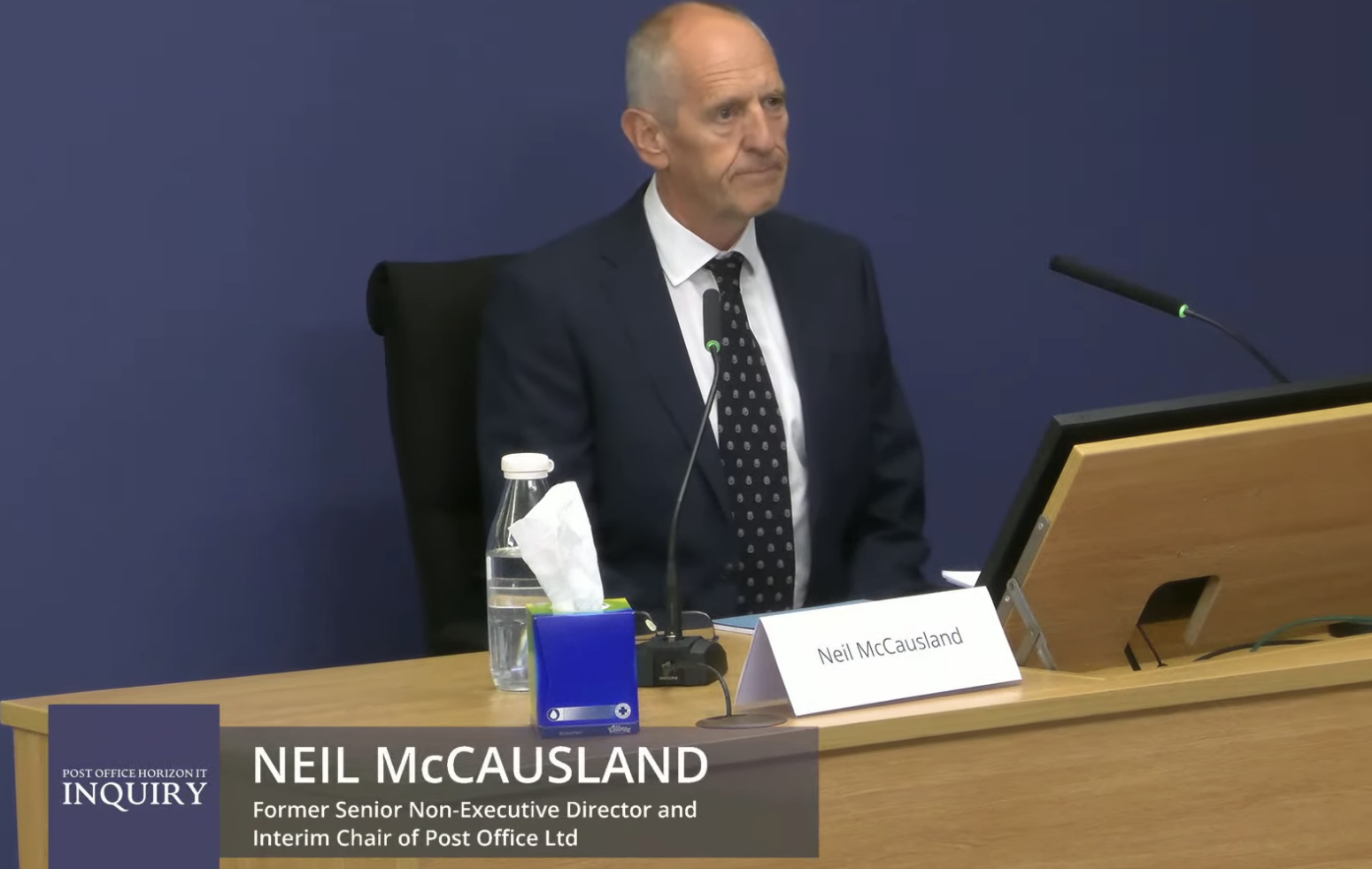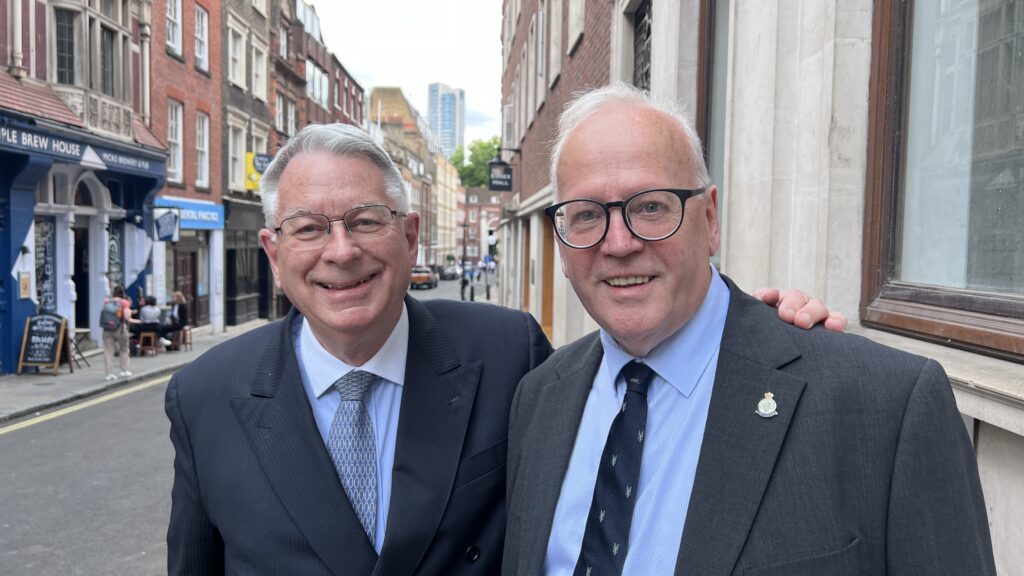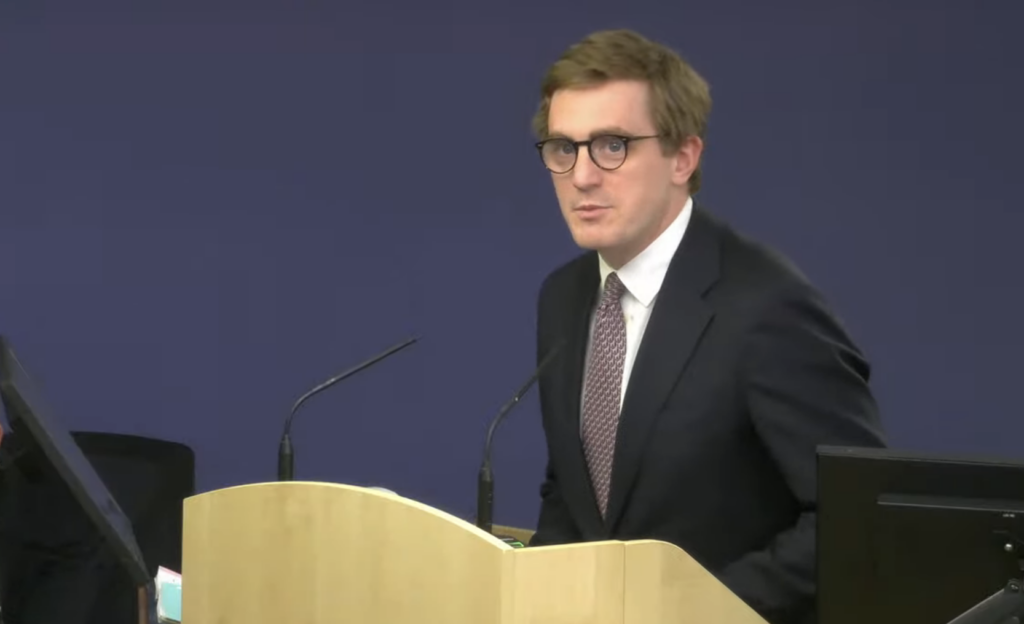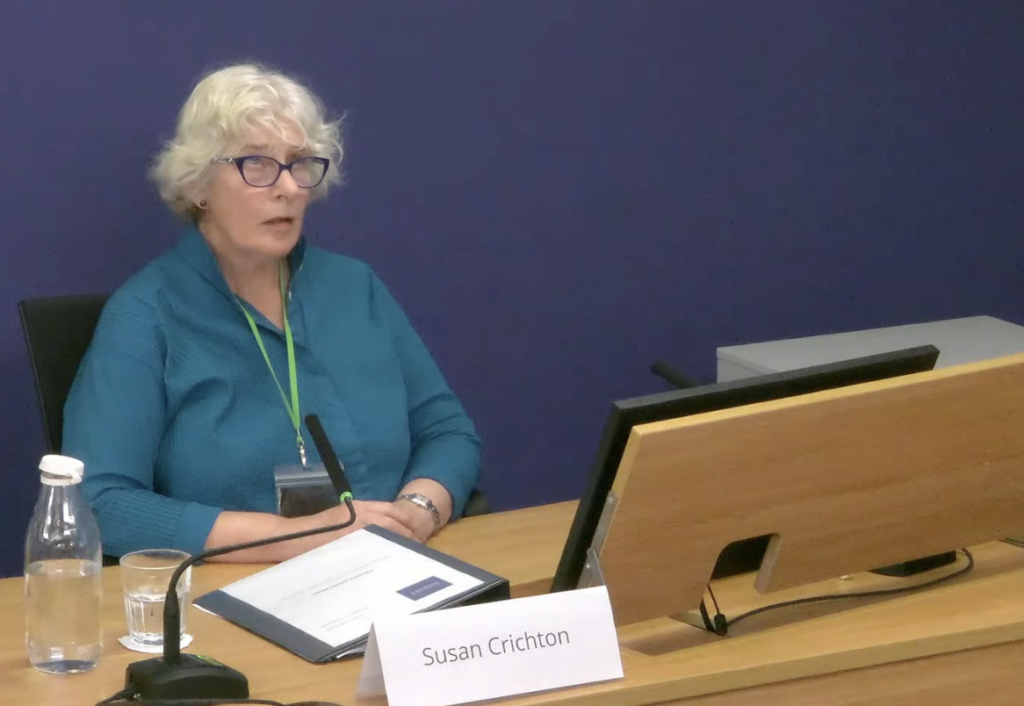
Neil McCausland was a non-executive director (NED) at the Post Office. In fact, he was the Senior Independent Director (SID), responsible during board meetings for robust examination of the executive’s actions and responsible outside board meetings for doing his research, marshalling the opinions of the other NEDs and communicating them to the Chair and executive as appropriate. It is quite clear from his evidence today he was nowhere near as dreadful as his successor, Ken “I don’t” McCall, who has already given evidence to the Inquiry.
To be fair to this article’s headline, SIDs and NEDs are nowhere near the wheel – they’re more back-seat drivers, but they are vital to the proper workings of a company, because they should be scrutinising decisions, asking difficult questions, and if necessary, lobbying the board to mandate a course of action to help a company, or to save it from itself.
McCausland seemed to have a relatively decent grip of the issues at stake (integrity of the Horizon IT system’s financial data, potential miscarriages of justice) but he fell into a lot of traps set by the Post Office (particularly their inability to handle Second Sight and the information Second Sight were generating) and he was simply not told about the existence of the Clarke Advice.
Basic Cheese
McCausland knew that without properly compensating the Subpostmasters who were campaigning for justice, the problem was unlikely to go away. He told the Inquiry that estimates being knocked around internally in February 2014 (once the complaint and mediation scheme was underway) ranged from £6m to £100m.
“We internally and the board had had some discussions. I was suggesting significant goodwill payments, others were saying no. The Linklaters work basically said that the key determinant of that was going to be how robust we were with our belief that Horizon was not malfunctioning.”
Linklaters (commissioned in response to the Second Sight Interim Report, published in July 2013), noted that the Post Office simply had no idea how robust Horizon was and need to do the work to find out.

McCausland gave us the reason why this was important in a commercial context – once Deloitte (commissioned on the back of the Linklaters report) had given an independent opinion on the robustness of Horizon, the Post Office had its negotiating, or rather, compensation calibration tool.
Of course what happened was that Deloitte only did a desktop review (ie they looked at framework documents which told them how Horizon should work), refused to let that review get published, and the more expensive, in-depth investigation which would give the Post Office hard information on the robustness of Horizon was never completed.
The Post Office then ran its Subpostmaster Mediation Scheme (set up partly to determine how much they might be in for when it came to compensation demands) into the ground.
Giving good NED
Although reporting from the inquiry in recent weeks has felt like wading through treacle, McCausland was helpful in pointing out the precise moment when and where the Post Office’s appalling prosecution escapade mutated into a criminal enterprise – the withholding of the First Clarke Advice from the board.
McCausland had (mis)read the Second Sight Interim Report (like many others at the Post Office) to conclude there were no problems with the Horizon software. He also didn’t pick up on the potential problems they had begun to highlight with unsafe prosecutions, telling the Inquiry “the thing that I’m getting from Second Sight report is that there are no systemic system-wide issues with Horizon but there are significant issues with training, support, call centre, etc.”
This, he felt, was good news as it gave the Post Office something to go on. He told the Inquiry he was “pleased that we seemed to be finding some reasons for the unexplained losses and that gave us frankly, so we got into the working party, the mediation scheme, the business support programme...”
But one thing neither McCausland or any other board member was told about was the Clarke Advice – delivered to Post Office General Counsel Susan Crichton seven days after the Second Sight report was published, and a day before the crucial board meeting she was shut out of. McCausland didn’t attend that board meeting, but he is absolutely clear what should have happened, telling the Inquiry:
“Susan being left outside on a chair is a bit of a red herring. It’s clumsy, it shouldn’t have happened, but it is Susan’s job as General Counsel to inform the Board of hugely relevant pieces of information which, as I’ve said, I fundamentally believe would have changed the way that we operate. And for those pieces of information not to have been disclosed… I think it is wrong.”
McCausland noted it wasn’t just the board which didn’t get the Clarke Advice:
“I don’t think it went to the CCRC [Criminal Cases Review Commission]. I think it was airbrushed from history very consistently. I have absolutely no reason why that would be the case, which is acceptable.”
McCausland says that when it came to the Post Office’s decision to stop prosecuting Subpostmasters, he was never told it was because the Clarke Advice had revealed their expert witness, Gareth Jenkins, to be unreliable. “Somebody told me that the old Fujitsu expert had moved on, but told me in such a way that I didn’t particularly think, ‘oh my God, he’s been discredited’. I thought he’s retired, resigned… gone to work somewhere else.”
The cost of training up a new expert had been put at £200,000 and this, along with the rest of Chris Aujard’s Feb 2014 board paper was why the Post Office was persuaded not to continue prosecuting. Sam Stevens, who asked questions for the Inquiry today pushed McCausland on who told him about the expert witness problem. McCausland replied:
“either through Susan [Crichton] or Paula [Vennells – CEO] or Leslie [Sewell – PO CIO], probably at a board meeting. That’s probably the most likely way.”

Susan Snowflake
Susan Crichton’s meltdown in a Costa Coffee near the Post Office’s then Old Street HQ in 2013 was also brought up by the Inquiry. Paula Vennells had a meeting with Crichton and took a contemporaneous note. Crichton told the Inquiry she has no recollection of the meeting whatsoever. She’s either lying, blanked it from her memory or Vennells made the whole thing up. Either way Vennells sent her note of the meeting to McCausland and asked for a chat. McCausland has no real recollection of meeting Vennells about this. In fact, he told the Inquiry:
“I’m happy to reflect on what I think I would have said but as to what I actually did say I would struggle.”
Asked by Stevens if he could perhaps reflect on the “overall tenor of the conversation” McCausland once more warned “I’m not quite sure if it’s in that actual recollection or if it’s what I’m imagining“, nonetheless, he told Stevens:
“I think that my reaction to Paula would have been that Susan is being over-emotional about it… being left in the corridor outside the board meeting, yes, it’s clumsy, but that’s not a resigning matter… there were lots of other members of the executive who were come into the board meeting and frankly got a hard time…. it was a robust environment. So for somebody to be upset about being left in a corridor: get over it, it’s not a resigning issue.”
Don’t forget – that’s McCausland’s “vague recollection, but I honestly cannot remember the specifics of that conversation.“
He certainly seemed to have it in for Crichton, putting a new twist on the lessons learned review commissioned in the wake of the Interim Report. When she gave evidence at the Inquiry, Crichton was quite clear she felt any lessons learned review would likely find her to be a convenient scapegoat for allowing independent investigators the freedom to find out things the Post Office would rather they didn’t. In the end, the scope of the review was narrowed on the advice of Andy Parsons – the Womble Bond Dickinson lawyer who warned it would become disclosable. McCausland told Stevens:
“We were being steered away from this Lessons Learned Review by lawyers telling us it was a bad thing and we would put ourselves at risk… I think that I would have accepted it because it’s quite strong legal advice saying from a business point of view we should not do that, but at the time I would I do remember being very frustrated.”
McCausland seemed to think this was evidence of Crichton doing everything she could to bury the Clarke Advice. Or at least that the way he wants to paint it now:
“In hindsight,” he told Stevens, “I see it very differently and it feels like Susan is… one of the reasons that she’s so against it is because she’s frightened that the Lessons Learned Review is going to turn up some of the things that frankly should have come to the board and didn’t.“
That sounds like an indirect accusation that Crichton was attempting to pervert the course of justice. It’s certainly true a competent review would uncover the Clarke Advice and Crichton’s failure to alert the board about it, but everything we know about Crichton suggests she was trying to do the right thing, yet didn’t have the strength of personality to do the job fate picked out for her. Either that or she was gaslit/bullied so much she imploded with stress.
I think it’s telling that after the 16 July board meeting, when Crichton was clearly at the end of her rope, she got in touch with McCausland via email about the Cartwright King internal review of criminal cases and said to him:
“Neil, please let me know if you would like to discuss this issue or want an update and I will put some time in the diary when you are next in the building.”
McCausland replied:
“Thanks very much Susan, I think I’m up to date and understand the issues so probably no need for a special update.”

McCausland’s reason for batting away a meeting offer is because “I believed that I was up to date“. I might be reading too much into all this, but it is at least possible to read this as Crichton’s attempt to reach out to McCausland and tell him stuff he needs to know. It might also be possible McCausland was part of the conspiracy to bury everything, or part of the corporate ostracisation of Crichton, started by allowing Second Sight the space to do their job. McCausland, did, however give a plausible explanation for his decision not to meet Crichton:
“Susan isn’t saying, ‘Neil, I’ve got some really important information I need to share with you.’ Susan’s saying, ‘Please let me know if you would like to discuss this issue. I want an update.’ I didn’t want an update. I was up to date. Now, clearly with hindsight, I would have loved to know that Gareth Jenkins had been discredited, that we had the Helen Rose/Lepton report and the Clarke advice had come out which had put a fundamentally different spin on things, but that wasn’t what she was saying.”
He has a point. Assuming McCausland is not lying, he has helpfully (and perhaps unwittingly) delineated the scope of some of criminal charges which might follow this inquiry. The Clarke Advice was a time bomb. Anyone inside the Post Office who contributed to the process which stopped the information in the Clarke Advice from reaching the Post Office board (and, for that matter, the Criminal Cases Review Commission) should be investigated for perverting the course of justice. Whether they have a case to answer is for the CPS to decide.
The only reasons (I can think of) for holding back the information in the Advice is to avoid corporate/personal reputational damage and/or corporate financial liability. The deliberate decision not to inform the Post Office board about the Clarke Advice (made by multiple people) stopped several dozen (at least) Subpostmasters from getting timely access to the Court of Appeal. That’s about as serious as it gets.
You can read the collated live tweets of McCausland’s evidence at the Inquiry today here (part 1) and here (part 2), with added document screenshots.
The journalism on this blog is crowdfunded. If you would like to join the “secret email” newsletter, please consider making a one-off donation. The money is used to keep the contents of this website free. You will receive irregular, but informative email updates about the Post Office Horizon IT scandal.

Leave a Reply